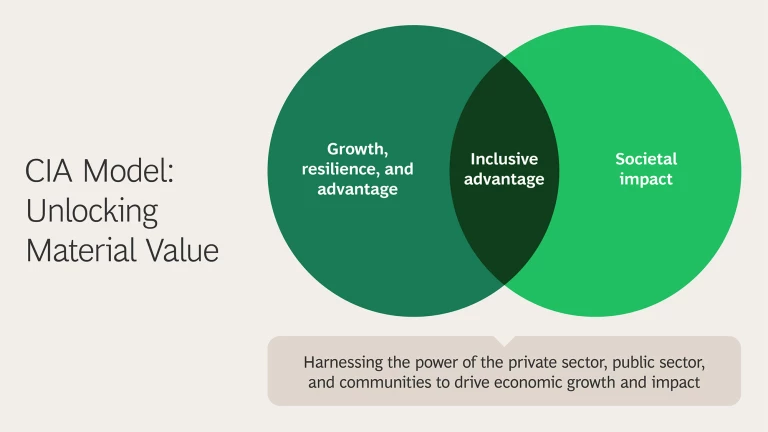
The intersection of business growth and societal progress creates a unique opportunity for sustainable advantage. By aligning enterprise strategy with evolving market needs, organizations can drive long-term resilience and inclusive economic growth.
Our Approach and How We Work with Clients
A Strategic Growth Perspective
We recognize that every business is unique. Our data-driven, market-tested solutions are designed to align with each organization's strategic objectives while driving measurable impact. We take a collaborative approach to help clients navigate evolving market conditions, ensuring diverse perspectives which contribute to stronger decision-making and sustainable success. Our team works closely with leaders to develop insights, refine strategies, and support organizations in aligning priorities with long-term success.
We bring together a team of over 250 experts across the full range of industries to:
- Refine commercial strategies to support business growth
- Develop industry-specific insights and benchmarks to inform decision-making
- Collaborate with stakeholders to shape the future of strategic growth and impact
The Center for Inclusive Advantage focuses on three key goals:
- Convene leaders across the private, public, and nonprofit sectors to accelerate inclusive impact, which can drive progress in business innovation & market evolution.
- Conduct original research and promoting best practices to inform decision-making and drive measurable societal & business impact.
- Support to align inclusive opportunity with their strategic priorities holistically, promoting long-term success.
Business Impact Examples






Our Inclusive Advantage Insights













